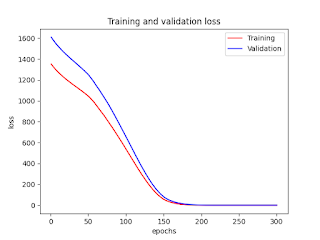How to win friends & influence people:
Part 1 (Influence people and let them move.)
Principle 1: Don't criticize, condemn, or complain.
Principle 2: Give honest and sincere appreciation.
Principle 3: Arouse in the other person an eager want.
Part 2 (Let them like you.)
Principle 1: Become genuinely interested in other people.
Principle 2: Smile.
Principle 3: Remember that a person’s name is to that person the sweetest and most important sound in any language.
Principle 4: Be a good listener. Encourage others to talk about themselves.
Principle 5: Talk in terms of the other person’s interests.
Principle 6: Make the other person feel important - and do it sincerely.
Part 3 (Persuade them.)
Principle 1: The only way to get the best of an argument is to avoid it.
Principle 2: Show respect for other person's opinions. Never say, "You're wrong."
Principle 3: If you are wrong, admit it quickly and emphatically.
Principle 4: Begin in a friendly way.
Principle 5: Get the other person saying “yes, yes” immediately.
Principle 6: Let the other person do a great deal of the talking.
Principle 7: Let the other person feel that the idea is his or hers.
Principle 8: Try honestly to see things from the other person’s point of view.
Principle 9: Be sympathetic with the other person’s ideas and desires.
Principle 10: Appeal to the nobler motives.
Principle 11: Dramatize your ideas.
Principle 12: Throw down a challenge. (Ignite rivalry.)
Part 4 (Change others.)
Principle 1: Begin with praise and honest appreciation.
Principle 2: Call attention to people’s mistakes indirectly.
Principle 3: Talk about your own mistakes before criticizing the other person.
Principle 4: Ask questions instead of giving direct orders.
Principle 5: Let the other person save face.
Principle 6: Praise the slightest improvement and praise every improvement. Be “hearty in your approbation and lavish in your praise.”
Principle 7: Give the other person a fine reputation to live up to.
Principle 8: Use encouragement. Make the fault seem easy to correct.
Principle 9: Make the other person happy about doing the thing you suggest.
Seven Rules For Making Your Home Life Happier
- Don't nag.
- Don't try to make your partner over. (Admit other's strength.)
- Don't criticise.
- Give honest appreciation.
- Pay little attentions. (Care about your significant others.)
- Be courteous.
- Read a good book on the sexual side of marriage.
References:
http://www.hubspot.com/sales/how-to-win-friends-and-influence-people-summary
https://en.wikipedia.org/wiki/How_to_Win_Friends_and_Influence_People#Seven_Rules_For_Making_Your_Home_Life_Happier
Buy this book at:
Amazon.com

